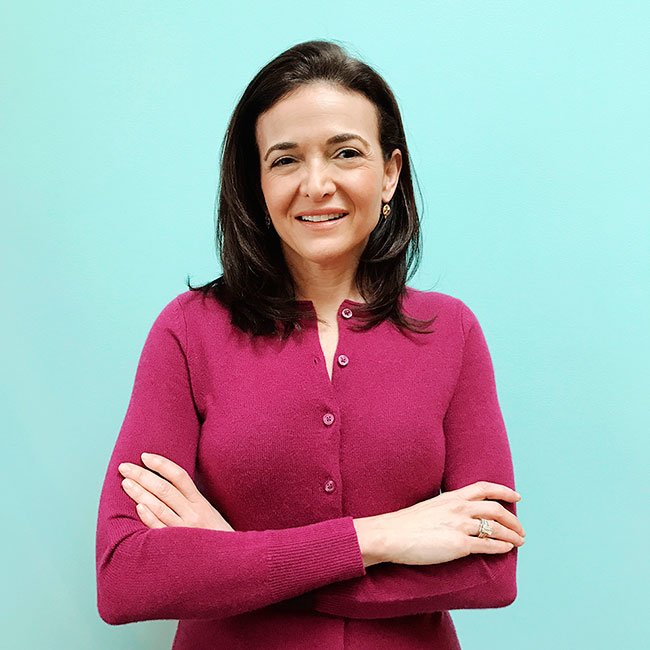《财富》专访:桑德伯格谈带薪家庭假、社会活动和数据滥用

|
在人们的描绘中,硅谷往往是个对女性充满敌意的地方。不过科技公司已经开始带头改善带薪休假政策。就此而言,为所有员工提供4个月带薪假期的Facebook走在了最前端,而雪莉·桑德伯格在其中发挥了不小的作用。这位首席运营官和《向前一步》(Lean In)的作者成为了联邦政府带薪休假政策的公开支持者。
《财富》与桑德伯格就如何让其他美国公司效仿Facebook的话题进行了交流。下文是经过编辑的对话摘录。
《财富》:您公开就带薪休假的问题发表了看法,并表示需要联邦政府出台相应政策。您和Facebook为了推动这种趋势,做了哪些努力?
雪莉·桑德伯格:我个人很支持家庭法案(它会让联邦政府强制执行带薪休假政策)。我希望看到联邦层面通过立法,而国内有很多好的活动在让人们得到所需的帮助。商业领袖有责任推动合适的公共政策出台。不过在(带薪休假)法案尚未得到通过的环境下,(我们需要)采取力所能及的措施。我们有责任在公司内部推行政策,树立正确的榜样。
有了政策还不够,你还要推行它。我很自豪,马克(扎克伯格)休了陪产假,树立了好的榜样。我们的首席技术官休了陪产假,我们的首席产品官也休了。我们需要反对的重要观念之一,就是生产仅与女性有关。这是个家庭问题,如果我们希望母亲与父亲在家庭中拥有平等的地位,一开始就需要保持平等。这就是平等的陪产假为何如此重要。我们为双方(母亲和父亲)都提供了4个月的假期,鼓励员工去休。我们发现的另一件事在于,如何推行政策有很大的灵活度。第一年执行政策时,我们提供的是4个月假期。这确实提高了参与度,尤其是在男性员工当中。
Facebook为男性和女性提供了慷慨的带薪休假政策,但大部分美国人——87%——享受不了任何这类待遇。如果没有联邦政策,如何才能更好地让美国公司加入你们的行列?
这个数据令人震惊:3,700万人没有病假,包括60%的低收入工人。只有14%的人拥有受探亲假。三分之一的母亲无法享受带薪产假。你希望做正确的事情,而它就是正确的事情。不过,我认为公司如果了解到这对他们自身而言也是个明智的做法,他们就会去做的。如果你在员工需要的时候给予他们关怀,就能赢得他们的忠诚,而拥有优秀的员工是取得成功最关键的要素。
这不是权衡。这不是在实现商业目标和实现关心员工的目标上进行权衡。你关心你的员工吗?如果是,那你就能实现商业目标。我认为,我们需要确保人们不需要在个人责任和职业责任之间进行权衡。
给我带来强烈感触的另一件事是丧假。甚至在我失去丈夫之前,我们就有很棒的相关政策,但我们进一步扩大了它的适用范围。对于直系亲属,我们如今会给予20天丧假,对于旁系亲属则是10天。许多公司效仿了我们。实际上,这个(月),芝加哥大学(University of Chicago)就这么做了,这很重要。他们是第一家(拥有丧假政策的)大学。
许多有关带薪家庭假的社会活动都是在Facebook上组织的。与此同时,公司在政治上扮演的角色近来引发了热议。在您看来,Facebook是否仍是可供选用的社会活动工具?
我认为这是组织活动的一个重要工具。Parkland游行(反枪支游行March for Our Lives)就是在Facebook上组织的。“黑人的命也是命”(Black Lives Matter)也有一些游行是在Facebook上组织的。Facebook是人们沟通的重要途径,我们也对Facebook在社会活动上扮演的角色感到自豪。女权运动Women’s March就是(来自)一个女性(在Facebook上)发的帖子。她表示:“如果人们游行会怎么样?”第二天早上她醒过来,游行就开始了。这并不意味着我们会不加甄别地希望各种事件都在Facebook上发生——我们正在采取强力的措施纠正这一点——不过作为人们组织活动的工具,Facebook影响力巨大。
数据分析公司Cambridge Analytica的信息滥用引发了许多争议,一些人可能会对继续使用Facebook这个平台保持警惕。用户应该对Facebook未来应该怎样作为推动政策进步的工具,公众对此应该有什么了解?
我们在2015年禁止了Cambridge Analytica那种使用数据的方式。那种用法已经不再存在。自那以后,我们又采取了许多措施,阻止其他可能出现的数据滥用情况。人们会继续使用Facebook,因为Facebook会继续成为人们交往和沟通的途径之一。(财富中文网)
本文的另一个版本登载于《财富》2018年5月1日刊,标题为“雪莉·桑德伯格:带薪假期‘并非出于权衡’”。 译者:严匡正 |
Silicon Valley is often described as a hostile place for women. Yet tech companies are leading the charge when it comes to progressive paid leave policies. Facebook—which offers four months of leave to all employees—is a leader in this regard, thanks in no small part to Sheryl Sandberg. The chief operating officer and Lean In author has emerged as a vocal proponent of a federal paid leave policy.
Fortune spoke with Sandberg about how to get the rest of corporate America to follow Facebook’s lead. Edited excerpts follow.
Fortune: You’ve spoken up about the issue of paid leave and the need for a federal policy. What are you and Facebook doing to keep rolling that ball forward?
Sheryl Sandberg: I’m personally supporting the FAMILY Act [which would establish federally mandated paid leave]. I’d like to see legislation pass at the federal level, and there’s a lot of good activity at state levels that gets people the coverage they need. Business leaders have a responsibility to push for the right public policy. But in this environment where these [paid leave] bills are not passing, [we need] to take the steps we can take. We are responsible for the policies for our companies and also for setting the right example.
It’s not enough to have the policies, you also have to use them. I’m really proud that Mark [Zuckerberg] took paternity leave. He sets the right example. Our CTO took paternity leave, our chief product officer took paternity leave. One of the most important things we need to fight is the idea that this is a female issue. This is an issue for families and if we want mothers and fathers to be equal parents in the households, we need to start out equal. And that’s why equal paternity leave is so important. We give four months to both [mother and fathers] and we really encourage people to take it. Another thing we found is that flexibility in how you take the policies works. We offer four months over the course of the first year. And that really increases participation, especially amongst men.
Facebook has a generous paid leave policy for men and women, but the vast majority of Americans—87%—don’t have access to any form of leave. In absence of a federal policy, what’s the best way to get corporate America on board?
The numbers are astounding: 37 million people get no sick days. And that applies to 6 in 10 lower-income workers. Only 14% of people have access to paid family leave at work. A third of working mothers don’t have access to any paid leave. You want to do the right thing because it’s the right thing, but I think if businesses understand that it’s also the smart thing for them, they will do it. If you take care of your employees when they most need it, they are most loyal—and having great employees is most critical to success.
These are not trade-offs. This is not a trade-off between your business goals and your goals of taking care of your people. You take care of your people? You meet your business goals. And I think we need to make sure that people aren’t making trade-offs between taking care of their personal responsibilities and professional responsibilities.
Another thing I feel really strongly about is bereavement leave. We had really good policies even before I lost my husband, but we extended them. We’re now at 20 days for immediate family, 10 days for extended family. A lot of companies have stepped up. And actually, this [month], the University of Chicago did it, which is really big. They are the first university to [have a bereavement leave policy].
A lot of organizing around paid family leave has happened on Facebook this year. Meanwhile, the company’s role in politics has been taking a lot of heat lately. Do you still see Facebook as a viable tool for activism?
I think it’s a critical tool to organize around issues. A bunch of the Parkland March [for Our Lives] was just organized on Facebook. Some of Black Lives Matter was organized on Facebook. Facebook is a critical way that people communicate and we’re really proud of the role Facebook plays in social mobilization. The Women’s March was [born from] a [Facebook] post a woman did. She said, ‘What if people march?’ She woke up the next day and there was a Women’s March. That doesn’t mean there haven’t been things on Facebook that we don’t want to have happen on Facebook—and we’re taking strong steps to correct that—but as an organizing tool for people who are trying to reach communities, it’s huge.
Because of the controversy surrounding data analytics firm Cambridge Analytica’s misuse of information, some people may be wary of continuing to use the platform as before. What should users know about the future of Facebook as a tool to push policy changes forward?
The specific use case that allowed Cambridge Analytica was shut down in 2015. That use case no longer exists and we’ve taken a lot of steps since then to shut down other possible use cases for data to be misused. People continue to use Facebook because Facebook continues to be a way to reach out and connect with people.
A version of this article appears in the May 1, 2018 issue of Fortune with the headline “Sheryl Sandberg: Paid Leave ‘Is Not a Tradeoff.’” |













